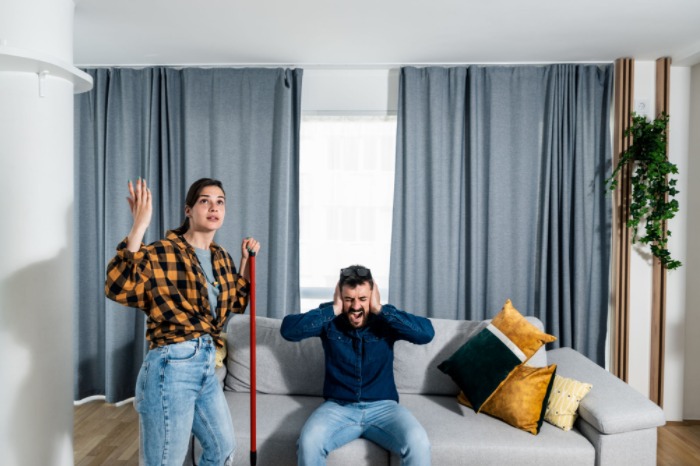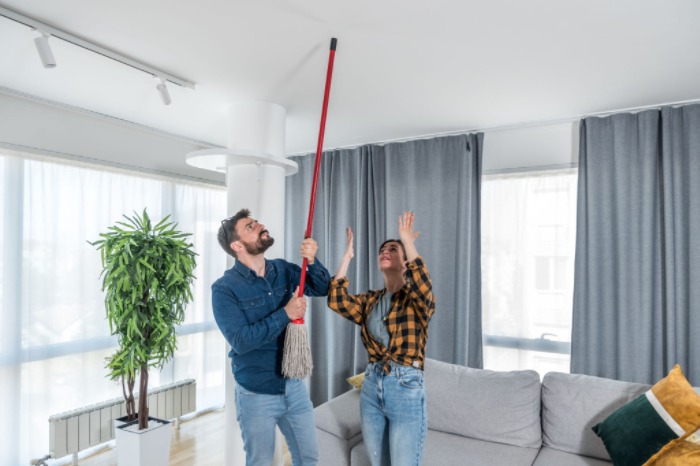Airbnb has revolutionised the hospitality industry by offering travellers unique accommodations worldwide. However, this rise of Airbnb has also introduced challenges, particularly in the form of neighbourhood complaints. These issues often stem from the transient nature of short-term rentals, which can disrupt residential areas. Understanding the nature of these complaints is crucial for hosts who aim to maintain a harmonious relationship with their community.
The impact of Airbnb on local communities has been extensively researched, revealing both positive and negative effects. Edward Kung from California State University, Northridge, conducted research indicating that while Airbnb can raise rental prices and reduce housing supply for long-term renters, it also spurs residential property development.
Identifying Common Airbnb Neighborhood Complaints
A critical step in addressing Airbnb-related problems is identifying the most common complaints lodged by neighbours. Noise and disturbance issues top this list, with guests often unaware of the community’s noise norms. Parties, loud music, or even just heavy foot traffic can disrupt a neighbourhood’s peace, especially in areas not accustomed to tourist activity.
Parking and traffic concerns are also significant. An influx of guests can lead to congested streets and limited parking, frustrating residents who are accustomed to certain standards. Additionally, the increased traffic can raise safety concerns, particularly in neighbourhoods with narrow roads or limited pedestrian areas.
Property maintenance and appearance complaints are another area of concern. Airbnb properties that are not well-maintained can become eyesores, affecting the neighbourhood’s aesthetic and potentially its property values. Overgrown gardens, uncollected trash, or neglected exteriors can all contribute to negative perceptions of Airbnb rentals.
Legal Considerations: Is Airbnb Legal in My Neighborhood?
Understanding local laws and regulations is crucial for Airbnb hosts. The legality of operating a short-term rental varies significantly from one location to another, with some cities imposing strict regulations or outright bans. Hosts need to be well-informed about their local laws to avoid legal troubles and neighbourhood disputes.
Navigating zoning and licensing requirements can be a complex process. In many areas, hosts may need to obtain permits or licences to operate legally. These regulations often aim to balance the interests of short-term rental operators with those of the permanent residents. Failure to comply with these regulations can lead to fines, legal action, or the suspension of listings on Airbnb.
Strategies to Prevent Airbnb Neighborhood Complaints
Effectively preventing complaints begins with proactive measures. Clear communication with neighbours is essential. Informing them about your Airbnb activity and providing contact information for any concerns can foster a sense of trust and cooperation. This step not only mitigates immediate issues but also builds long-term relationships within the community.

Establishing house rules for guests is another effective strategy. These rules should clearly outline acceptable behaviour, particularly regarding noise levels, parking, and property care. Enforcing these rules can significantly reduce the likelihood of disturbances. Implementing noise monitoring systems, like noise level detectors, can also help in maintaining peace and ensuring guests adhere to the set rules.
Additionally, addressing parking and traffic concerns by providing guests with clear guidelines about where to park can alleviate potential friction with neighbours. If possible, offering dedicated parking spaces for guests or suggesting nearby parking alternatives can be beneficial. Regular property maintenance ensures the Airbnb rental blends seamlessly into the neighbourhood, maintaining its aesthetic appeal and property values.
research has shown that the presence of Airbnb listings in certain areas is positively associated with increases in property prices and rental rates. This suggests that concerns about Airbnb’s effect on the housing market are valid, though further research into the long-term effects is needed.
Handling Complaints and Resolving Conflicts
When complaints do arise, addressing them swiftly and efficiently is vital. Immediate response to neighbours’ concerns shows respect and willingness to maintain a harmonious community. It’s important to listen empathetically to the complaints, understand the specific issues, and offer practical solutions. Documenting these complaints and your responses can also be useful for future reference and proving compliance with Airbnb policies.
Building positive relationships with neighbours can turn potential adversaries into allies. Regular check-ins, sharing your vision for your Airbnb property, and involving them in some decision-making can create a supportive community network. This approach not only helps in resolving current complaints but also in preempting future issues.
Collaborating with local authorities when necessary is crucial, especially in situations where legal or safety concerns are involved. Working with community leaders and law enforcement can demonstrate your commitment to responsible hosting and community welfare. This collaboration can also provide valuable insights into better managing your Airbnb property in alignment with community expectations.
Balancing Guest Experience with Neighborhood Harmony
Ensuring guest compliance with community standards is paramount. Educating guests about the local culture and expectations can greatly reduce the likelihood of complaints. Providing a detailed guidebook or welcome packet that includes neighbourhood etiquette, along with your house rules, can be an effective tool.
Maintaining a positive reputation in the neighbourhood is as crucial as ensuring a great guest experience. Encouraging guests to respect the local community and its norms contributes significantly to this. Regularly reviewing guest feedback and adjusting your approach accordingly can help in continuously improving both guest satisfaction and neighbourhood relations.
Proactive Measures to Mitigate Airbnb Ruining Neighbourhoods
Community engagement is a proactive measure that can mitigate negative perceptions of Airbnb in neighbourhoods. Participating in local events, supporting neighbourhood initiatives, or even organising community gatherings can portray Airbnb hosts as responsible and community-oriented individuals. This involvement not only addresses the issue of Airbnb potentially ruining neighbourhoods but also showcases the positive aspects of short-term rentals.

Regular monitoring and evaluation of the rental’s impact on the neighbourhood are crucial. This involves keeping track of noise complaints, parking issues, and the general sentiment of the community towards your rental. Adapting strategies based on these evaluations can lead to more harmonious coexistence. For instance, if parking emerges as a primary concern, hosts might consider arranging alternative parking solutions or limiting the number of guests per booking to reduce vehicle congestion.
Regularly seeking feedback from neighbours about their experiences and concerns regarding your Airbnb can also be beneficial. This feedback provides valuable insights into how your business affects the community and what changes could be made to improve the situation.
Fostering a positive relationship with the community is essential for Airbnb hosts. This involves more than just preventing complaints; it’s about becoming an integral, respected part of the neighbourhood. Building these relationships requires understanding and respecting the community’s values and needs.
Conclusion
Managing an Airbnb property requires a delicate balance between guest satisfaction and neighbourhood harmony. By understanding and addressing common complaints, adhering to legal requirements, implementing preventive strategies, and fostering a positive community relationship, hosts can significantly reduce the occurrence of neighbourhood complaints. Regular monitoring and adaptation of strategies are key to maintaining this balance.
Remember, a successful Airbnb business thrives not just on happy guests, but also on a supportive neighbourhood. Take the first step today towards building a more harmonious community around your rental property.
